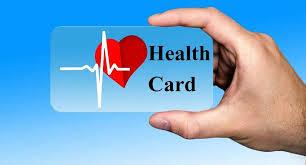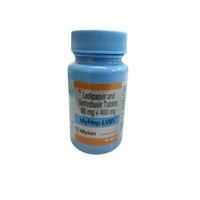In the realm of men’s health, the topic of erectile dysfunction (ED) is one that often carries a veil of discomfort and embarrassment. Yet, it’s a prevalent issue affecting millions worldwide, with various factors contributing to its occurrence. While physical health aspects such as cardiovascular conditions and hormonal imbalances are well-known culprits, the influence of psychological factors, particularly stress, on ED is often overlooked. This article aims to shed light on the intricate relationship between stress and erectile dysfunction, exploring how stress impacts sexual function and offering insights into coping strategies and solutions.
Understanding Erectile Dysfunction:
Before delving into the role of stress, it’s crucial to grasp the fundamentals of erectile dysfunction. ED, commonly known as impotence, refers to the persistent inability to achieve or maintain an erection sufficient for satisfactory sexual performance. While occasional difficulties with erections are normal, persistent challenges can lead to significant distress and impact relationships.
Physiological Mechanisms of Erection:
Erection is a complex process involving a combination of physiological and psychological factors. When sexual arousal occurs, the brain sends signals to the nerves in the penis, triggering the release of neurotransmitters that relax the smooth muscles of the corpora cavernosa (the spongy tissue chambers in the penis). This relaxation allows blood to flow into the penis, resulting in engorgement and erection. Any disruption in this process can lead to erectile difficulties.
The Stress-Erection Connection:
Stress, often described as the body’s response to demanding situations, can exert a profound influence on sexual function. When faced with stressors, the body releases hormones such as cortisol and adrenaline, preparing for a fight-or-flight response. While this reaction is essential for survival, chronic stress can wreak havoc on various bodily functions, including sexual health.
Impact of Stress on Sexual Function:
Chronic stress can disrupt the delicate balance of hormones and neurotransmitters involved in the erectile process. Elevated levels of cortisol, the primary stress hormone, can suppress testosterone production, leading to decreased libido and erectile difficulties. Moreover, stress can constrict blood vessels, impeding the flow of blood to the penis and hindering the ability to achieve and sustain an erection.
Psychological Factors:
In addition to its physiological effects, stress can also have profound psychological implications for sexual function. Anxiety, depression, and low self-esteem, often intertwined with chronic stress, can exacerbate erectile dysfunction by creating a cycle of performance anxiety and negative self-talk. Fear of experiencing ED during sexual encounters can further heighten stress levels, perpetuating the problem.
Coping Strategies and Solutions:
While the connection between stress and erectile dysfunction may seem daunting, there are various coping strategies and solutions available to mitigate its impact:
- Stress Management Techniques:
- Practice relaxation techniques such as deep breathing, meditation, and progressive muscle relaxation to reduce stress levels.
- Engage in regular physical activity, which can help alleviate stress and improve overall well-being.
- Prioritize adequate sleep, as sleep deprivation can exacerbate stress and contribute to sexual difficulties.
- Open Communication:
- Communicate openly with your partner about your feelings and concerns regarding erectile dysfunction.
- Foster a supportive and understanding environment, free from judgment or pressure.
- Seek Professional Help:
- Consult a healthcare professional, such as a urologist or therapist, for personalized advice and treatment options.
- Consider therapy or counseling to address underlying psychological issues contributing to stress and ED.
- Lifestyle Modifications:
- Adopt a healthy lifestyle that includes a balanced diet, regular exercise, and avoidance of excessive alcohol and tobacco use.
- Manage underlying health conditions such as hypertension, diabetes, and obesity, which can exacerbate erectile dysfunction.
Conclusion:
In the intricate tapestry of erectile dysfunction, stress emerges as a significant thread, weaving its influence through both physiological and psychological pathways. By acknowledging the role of stress in sexual health and implementing effective coping strategies, individuals can reclaim control over their sexual function and enhance overall well-being. Remember, seeking support and guidance is not a sign of weakness but a courageous step towards a fulfilling and satisfying life.






